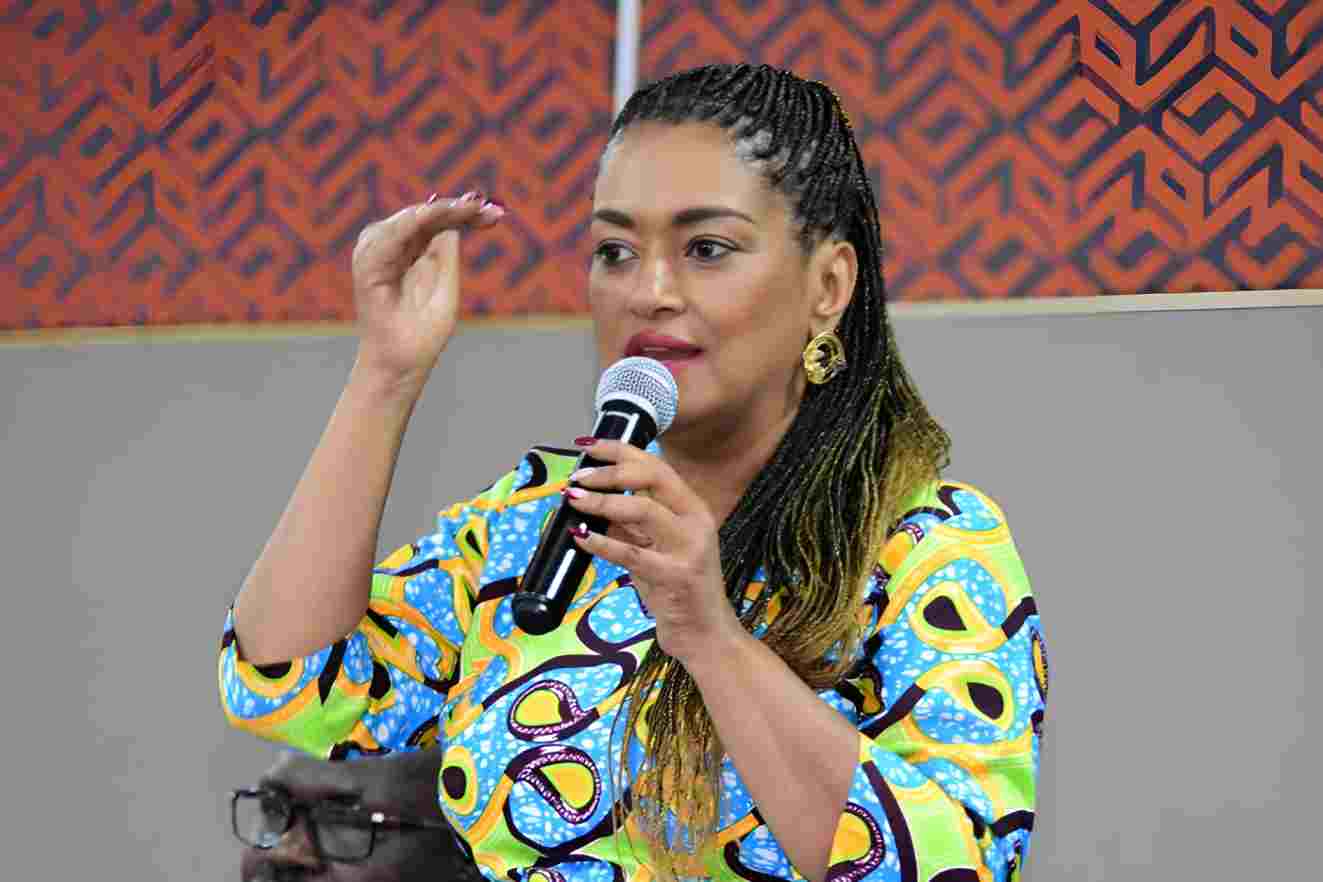We’re failing girls: Women MPs protest sanitary towel cuts

Nairobi Woman Representative Esther Passaris on Tuesday questioned why the NGAAF budget keeps shrinking, despite its crucial role in helping disadvantaged communities.
Women representatives have raised alarm over a sharp reduction in the National Government Affirmative Action Fund (NGAAF), warning that the cuts are crippling their ability to support vulnerable girls with essential items such as sanitary towels.
The allocation has been slashed by Sh104 million, down from Sh1.044 billion to Sh940 million, a move they say threatens the wellbeing and education of thousands of schoolgirls from poor families.
Nairobi Woman Representative Esther Passaris on Tuesday questioned why the NGAAF budget keeps shrinking, despite its crucial role in helping disadvantaged communities.
"The seat for Woman Representatives is an affirmative seat that deals with the most vulnerable in the country and this back-and-forth in budget cap is hurting us in achieving their constitutional mandate," she told MPs.
Passaris called for the law to be changed to protect NGAAF from further cuts and ensure women representatives are able to carry out their mandate effectively.
She said the fund should be restructured to function like the NG-CDF, with clear coordination and full support from the government.
"We want it created in a way that it will ensure that Woman Representatives coordinate the provision of sanitary towels and ensure women receive free, sufficient, and quality products," she said.
"I feel that we need to structure NGAAF in the same manner that NG-CDF is structured. Women leaders are struggling to justify why their money should not be cut when the money should be increased."
"It's very embarrassing that I can provide condoms but can't provide sanitary towels to thousands of vulnerable girls in 17 constituencies within Nairobi County," she added.
The reduced funding has made it harder for woman MPs to meet the growing expectations in their constituencies.
Tana River Woman Representative Amina Abdullahi Dika revealed the dire situation, saying they had not received any money for sanitary towels during the entire financial year.
"It is painful to note that for this financial year ending June, we've not received even a single coin for sanitary towels, yet everyone out here knows that women representatives are the one who are supposed to be giving sanitary towels," said Dika.
Thika Town MP Alice Ng’ang’a, who chairs the parliamentary committee overseeing these funds, also voiced concern, accusing government officials of making her look bad before fellow lawmakers.
"As the chair of this committee, you make me look very bad on the floor of the house when women raise issues regarding sanitary towels and budget capitation when I was supposed to be the one defending them at the budget level," she told ministry officials.
"When it comes to matters to do with sanitary towels, agree with them before you take any action this time."
The budget cuts go beyond sanitary towels.
Programmes targeting Female Genital Mutilation (FGM) have seen their budget drop from Sh216.92 million to Sh186 million, while funds for gender-based violence prevention have also been reduced.
Women leaders now fear that the country risks rolling back gains made in promoting gender equality and protecting women and girls from harm.
The details were laid out in budget documents presented to Parliament by Social Protection Principal Secretary Anne Wang’ombe, who explained that the reductions were part of a wider decision by the Cabinet to enforce lean budgets across all government departments.
"The estimates tabled before this committee differ significantly with the state department allocation as per the 2025 BPS Ceiling, affecting the National Government Affirmative Action Fund (NGAAF), Women Enterprise Fund (WEF) and Anti-Female Genital Mutilation Board (AFGM)," she told MPs.
Wang’ombe said the shortfall is partly due to fixed costs such as salaries and rent, which absorb much of the available funds. As a result, anti-FGM campaigns in areas like Mt. Kenya, Narok, Kajiado, Samburu and Migori have been disrupted.
Gender-based violence programmes have also been affected, with rising cases now being linked to the drop in funding.
Lawmakers have warned that unless the government acts urgently, thousands of girls could drop out of school and become more vulnerable to harmful cultural practices, as support systems collapse under budget pressure.
